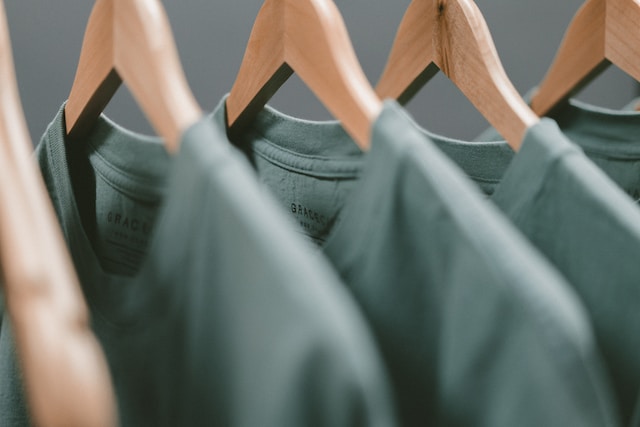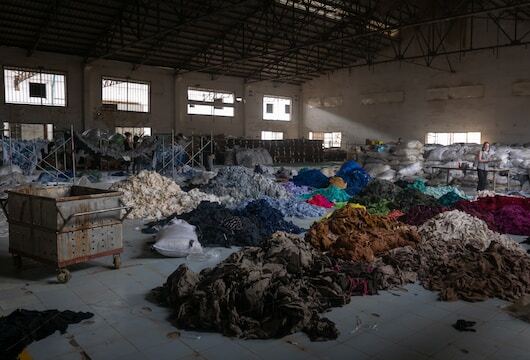Témy a otázky, ktoré môžete byť opýtaný
1. Does fashion reflect people's personality?
In my opinion, fashion can be a powerful way to show one's personality, though not always accurately or completely. Clothing and style choices often reflect our inner selves, showing parts of our character and preferences. For example, someone who likes bright colors and bold patterns might be seen as outgoing and adventurous. However, it's important to understand that fashion is just one part of who we are. People are complex, and their personalities have many traits that might not always be shown by their clothing choices alone.
Fashion can be a way for us to display certain parts of our identity, letting us project an image that matches how we want to be seen. For example, wearing classic and well-fitted outfits might show professionalism and attention to detail, even if that's not all of one's personality. On the other hand, people who choose a more casual and comfortable style might value relaxation and practicality. While fashion can give insights into a person's nature, it's important to remember that looks can be deceiving. What we choose to wear on a certain day might not show the full range of our thoughts, emotions, and values.
In the end, fashion can give glimpses into our personalities, letting us share parts of ourselves with the world. It's a creative way to shape our image and show our individuality. However, it's important to avoid making quick judgments based only on appearances. Just like a book's cover doesn't tell the whole story, our fashion choices might not show the richness and depth of our true selves. Recognizing this complexity leads to a more open-minded and detailed understanding of how fashion connects with personality.
2. Which piece of clothing you like to wear and why?
One piece of clothing that I genuinely love to wear is my worn-in denim jacket. There's something incredibly comforting and versatile about it that resonates with me. The jacket has become like a companion on various occasions, adapting seamlessly to different settings. It's not just about the material or style; it's the memories and experiences associated with it that make it special. Whether I'm heading out for a casual hangout with friends or a stroll through the park, the denim jacket adds an element of familiarity and comfort to my outfit.
What I particularly appreciate about this jacket is how it encapsulates a sense of timelessness. The slightly faded color and distressed edges tell a story of the adventures it's been on with me. Its rugged yet classic appearance seems to effortlessly complement various outfits, reflecting my preference for a blend of modern and vintage styles. Beyond its aesthetic appeal, my denim jacket is a symbol of my individuality – a piece of clothing that isn't confined by trends but rather speaks to my personal tastes and experiences. It's an embodiment of comfort, memories, and self-expression that makes it my ultimate favorite.


3. Do you see yourself liking latest fashion trends?
From my perspective, I find myself rather selective when it comes to embracing the latest fashion trends. While I appreciate the creativity and innovation that designers bring to the table, I'm also aware of the fleeting nature of many trends. Instead of blindly following every new fad that emerges, I prefer to take a more discerning approach. I consider whether a particular trend resonates with my personal style and whether it aligns with my comfort and practicality. This helps me strike a balance between staying current and staying true to my own preferences. Ultimately, while I do keep an eye on the latest fashion trends, my choices are guided by what feels genuine and authentic to me rather than simply following what's popular at the moment.
4. How does fashion industry negatively affect environment?
From my point of view, the fashion industry holds troubling impact on the environment. On one hand, fashion is a form of creative expression that allows individuals to showcase their personalities and cultures. It's a dynamic industry that contributes to economic growth and provides countless jobs. However, the rapid turnover of fashion trends and the pressure to constantly update one's wardrobe have led to an environmental degradation. The industry's fast-fashion model encourages frequent purchases of inexpensive garments that often end up discarded after a few wears. This cycle places immense strain on natural resources, from the production of raw materials to the energy-intensive manufacturing processes. Additionally, the excessive use of synthetic fibers and chemicals, as well as the lack of proper waste management, contribute to pollution of water bodies and soil.
Moreover, the fashion industry's reliance on exploitative labor practices in some regions further compounds its negative impact. The pursuit of lower production costs often leads to poor working conditions and low wages for garment workers. This not only raises ethical concerns but also perpetuates a cycle of environmental harm, as the focus on cheap production overshadows sustainable practices. In my view, the fashion industry has the potential to wield its influence for positive change. By adopting sustainable and ethical practices, promoting durable and timeless designs, and encouraging conscious consumer behavior, the industry can significantly reduce its environmental footprint. As consumers, we also hold a responsibility to make informed choices, supporting brands that prioritize sustainability and longevity over fast-paced trends. Through collective efforts, the fashion industry can transition to a more harmonious relationship with the environment while continuing to celebrate creativity and self-expression.